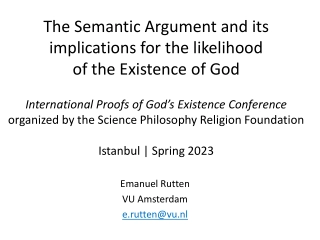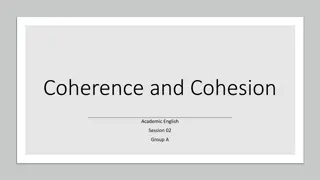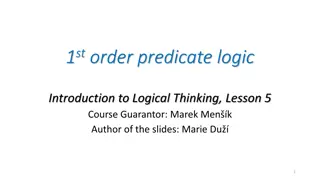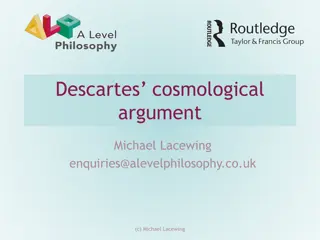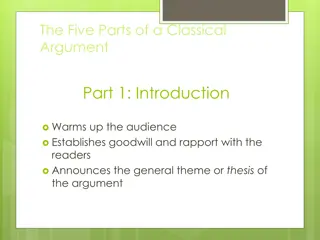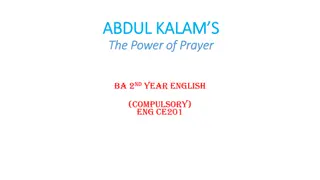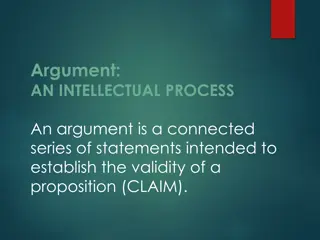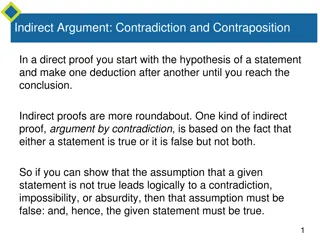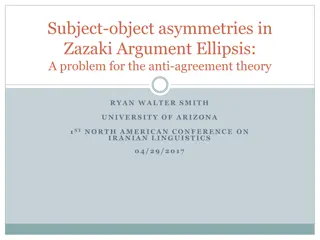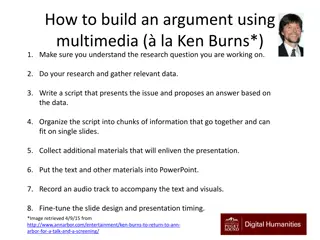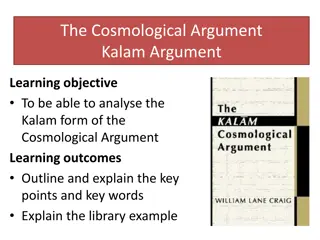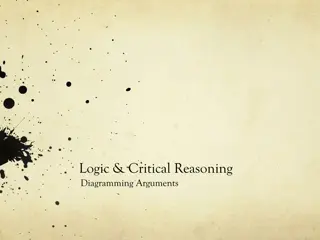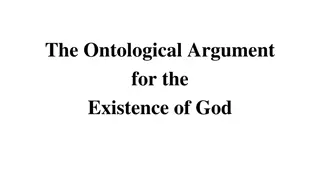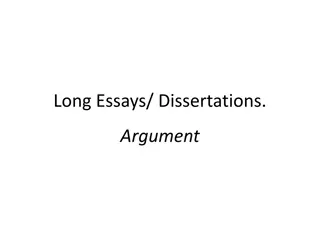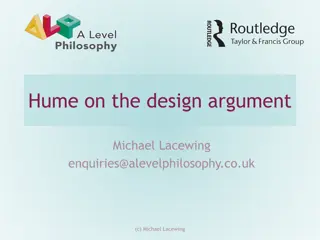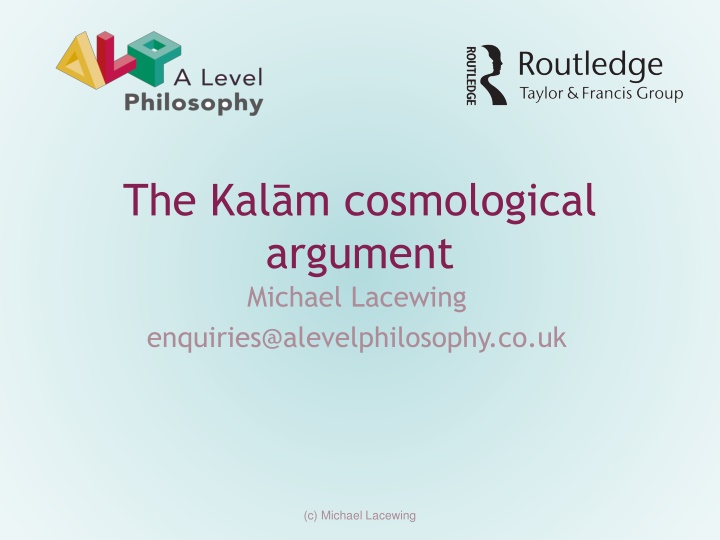
Unpacking the Kalm Cosmological Argument and Objections
Explore the Kalm cosmological argument by Michael Lacewing, discussing the existence of anything, the necessity of a beginning to the universe, the concept of actual infinities, objections related to the causal principle and infinity, and the implications for the existence of God. Delve into debates on causation, temporal phenomena, and the limits of infinity in understanding the origins of the universe.
Download Presentation

Please find below an Image/Link to download the presentation.
The content on the website is provided AS IS for your information and personal use only. It may not be sold, licensed, or shared on other websites without obtaining consent from the author. If you encounter any issues during the download, it is possible that the publisher has removed the file from their server.
You are allowed to download the files provided on this website for personal or commercial use, subject to the condition that they are used lawfully. All files are the property of their respective owners.
The content on the website is provided AS IS for your information and personal use only. It may not be sold, licensed, or shared on other websites without obtaining consent from the author.
E N D
Presentation Transcript
The Kalm cosmological argument Michael Lacewing enquiries@alevelphilosophy.co.uk (c) Michael Lacewing
The question Why does anything exist? Unless God exists, this question is unanswerable. (c) Michael Lacewing
The Kalm argument The universe is composed of temporal phenomena. Temporal phenomena are things that occur and exist in time that are preceded by other temporal phenomena that are ordered in time. An infinite regress of temporal phenomena is impossible. Therefore, the universe must have a beginning. Everything that begins to exist has a cause of its existence. Therefore, there is a cause of the existence of the universe. (To conclude that the cause is God requires further premises.) (c) Michael Lacewing
Actual infinities Why think that an infinite regress of temporal phenomena is impossible? Infinity is not a very large number An infinite regress of temporal phenomena never has a starting point The concept of infinity makes sense. But does an actual infinity? A hotel with an infinite number of rooms, when full, can take more people (an infinite number more)! This is nonsense a hotel can t be full and have room (c) Michael Lacewing
Actual infinities An actual infinity creates paradoxes If the universe is infinitely old, it is not getting older as time passes If the universe is infinitely old, it could never have reached the present, since an infinite time can t pass (c) Michael Lacewing
Objection: The causal principle Why think that everything that begins to exist has a cause of its existence? Because if we deny this, it seems that something can come from nothing. Hume: These claims are not analytic, so are not certain. Experience supports them, but can t show that they hold universally Could the existence of the universe be uncaused? Perhaps these claims don t apply in this unusual case we have no relevant experience Reply: perhaps the Kal m argument fails as a deduction, but still provides good reason to think God exists (c) Michael Lacewing
Objection 2: infinity An infinite regress of temporal phenomena is impossible That s fine. We know this universe began just under 14 billion years ago However, if we say that the cause of the universe was another universe, we raise the possibility of an infinite series of causes If time is part of the universe, then the cause of this universe didn t come before it in time But the paradoxes of an actual infinity apply to causes as well as temporal phenomena (c) Michael Lacewing
Objection 2: infinity Hume: It is not an analytic truth that an infinite regress of causes is not possible. But does an infinite regress make sense? Hume needs to solve the paradoxes regarding an actual infinity. Objection: The problem is with our thought We need new ways of talking about infinities (c) Michael Lacewing

